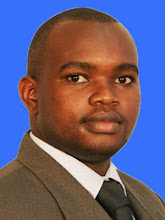Parliament’s rejection of a report by the Chris Okemo led Finance, planning and Trade committee, on the Controversial sale of the Grand Regency hotel may have come as a surprise to many Kenyans but not to anyone closely following the latest events in the house. The vote, widely considered a round one victory for Trade minister Amos Kimunya is widely attributed to a budding alliance between Rift valley MPs and their Mt Kenya colleagues in the wake of raging corruption allegations. After acrimonious debate on the floor of the house, which saw Agriculture Minister William Ruto on the spot over the Maize scandal, a day before the vote on the report, Rift Valley MPs reportedly warmed up to the alliance, with the agreement that their Mt Kenya colleagues would return the favor, should their man find himself in Kimunya’s shoes. A move that clearly confirms one thing: the Maize scandal is real! And yes it does implicate some of the very members of Parliament, who very passionately fought off Ikolomani MP Dr Boni Khalwale’s bid to name suspicious companies that bought maize from the NCPB.
What is even more perturbing are reports that money may have been used to lobby MPs into rejecting the report. Kenyan’s may find it difficult deciding which is worse between the two: The unholy alliance in a bid to protect corruption suspects or their MPs actually receiving bribes to either vote against the report or absent themselves from the house when the matter is brought before the house. What is Certain however is the fact that these reports, which have basis in truth are clear evidence of a parliament that has sold its soul and sacrificed the hopes of Kenyans on the alter of self preservation and out right corruption.
The emerging coalition of corrupt forces is apparently to blame for either slowing down or deliberately keeping away from the public, information crucial to unveiling the truth about the corruption scandals. The window dressing moves are a clear acknowledgement that leaders in government have been busy in corrupt deeds as the seek to blind Kenyans with high rhetoric. Why dismiss the NCPB board and several line managers and leave out the organizations top management? What are their errors and why hasn’t anybody taken Political responsibility over this scandal? Why is it that when parliament sought answers on this scandal all the minister they got from the minister was a long list of millers and other companies who bought maize from the NCPB? If the minister was above board in this matter, couldn’t he have taken the opportunity to expose the culprits, who have looted Kenya’s grain reserves, or is this an admission that he is unaware of the going-ons at the cereals board?
While consistently denying any involvement in both the grain bulk handling facility controversy and the maize diversion scandal, the prime minister has suspended one of his aides in relation to the scandal. What he did not tell the country was exactly why he took this action. What did the suspended officer do? Did he work alone or was he involved in a wider network? Is there any fact to the claims that members of the Premiers family were involved? The answers are still out there, and while nobody may be offering them, his actions are evidence that the scandal did not unfold too far away from him.
The Triton scandal may just be the most vexing of the scandals. Who is behind the withdrawal of the arrest warrant against one Yagnesh Devani? How did the whole scandal unfold without the knowledge of the government? Why hasn’t anybody taken Political responsibility for the scandal? How did Triton a company with an almost negligible market share and shaky financial history get awarded crucial contracts to import crude for Kenya? Is it curious that the company’s proprietor was reportedly a major contributor to the campaigns of the main presidential candidates in the 2007 elections, now together in government?
The Kenya Anti Corruption Commission is also to blame for the acute lack of answers to these crucial questions. Apart from failing in its crucial mandate to investigate and expose for prosecution the big fish in the countries major corruption scandals it is now being used as a scape goat by the politicians. When any of these politicians is put on the spot, the almost spontaneous defense is that they have called in KACC to investigate the scandal, which in the ears of any Kenyan, means that the big fish are once again set to get off the hook.
Kenyans should however not give up, if for nothing else, the knowledge that for every thief, there is a 40th day! For those siphoning the public coffers they have been appointed to safeguard, I believe their 40th day is coming too!
WATCH VIDEO:
THE UNHOLY ALLIANCE( AIRED ON KTN PRIME 30/01/2009)




